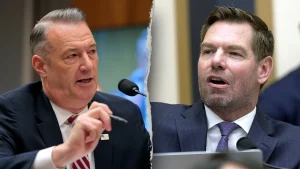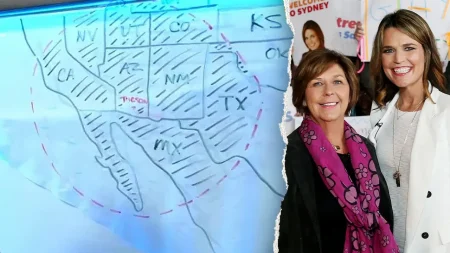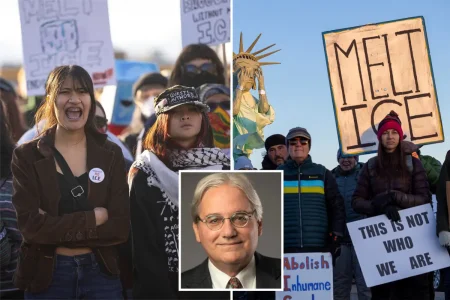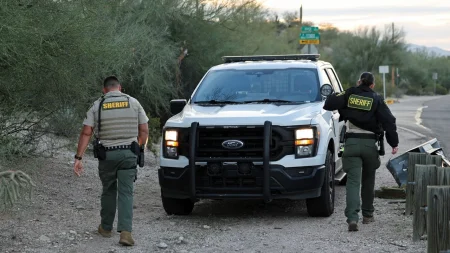Security Forces Urged to Stand Down Amid Rising Tensions in Southern African Nation
Unprecedented Military Appeal Shakes Nation’s Power Structure as Protests Enter Third Week
In an extraordinary development that has sent shockwaves through the political landscape, a military unit in a southern African nation has publicly called on security forces to defy orders from their commanding officers and refuse to fire upon civilian demonstrators. This remarkable breach in the chain of command comes as protests across the country have intensified, now stretching into their third week with no signs of abating. The unprecedented appeal marks a potential turning point in what began as street demonstrations but has evolved into a significant challenge to the established power structure.
The military unit’s statement, circulated widely through both official and unofficial channels, explicitly urged fellow security personnel to “stand with the people” rather than against them. “We call upon our brothers and sisters in uniform to remember their oath to protect the citizens of this nation, not to harm them,” read part of the declaration, which has been authenticated by multiple independent sources. The appeal further emphasized that following orders to suppress peaceful demonstrations would constitute a violation of both military ethics and international human rights standards. This internal fracture within the security apparatus represents a critical moment in a country where the military has traditionally served as the backbone of government authority, raising questions about the sustainability of the current administration if it can no longer rely on unified security forces.
Demonstrations began sixteen days ago in the capital following controversial government policies that critics say have exacerbated economic hardship and restricted civil liberties. What started as localized protests quickly spread to major urban centers across the country, drawing participants from diverse demographic groups. Eyewitnesses report that the initial government response involved deploying riot police and military units to disperse gatherings, resulting in confrontations that human rights organizations claim have led to dozens of injuries and several unconfirmed fatalities. International observers, including regional diplomatic missions and United Nations representatives, have expressed growing concern over the escalating situation, with several issuing statements calling for restraint and meaningful dialogue between government officials and protest leaders.
Military Divisions Emerge as Protest Movement Gains Momentum
The military unit’s call for disobedience appears to have emerged from mid-ranking officers who claim to represent a significant faction within the armed forces. Their unprecedented public statement suggests deepening divisions within what was previously considered a monolithic security structure. “We cannot and will not participate in violence against our own people who are exercising their constitutional right to peaceful assembly,” the statement continued, reflecting what analysts suggest may be widening cracks in the government’s support base. Security experts familiar with the region note that such public dissent within military ranks is exceedingly rare in this southern African nation, where security forces have historically maintained strict discipline and loyalty to civilian leadership regardless of political circumstances.
Government officials have responded to the military unit’s declaration with a mixture of dismissal and alarm. The Minister of Defense characterized the statement as “the isolated views of a few misguided individuals” and assured the public that the chain of command remains intact. However, in a telling move that suggests genuine concern, the administration has reportedly ordered an immediate reshuffling of key military positions and initiated internal investigations to identify sympathizers within the ranks. Political analysts suggest this response indicates the government recognizes the potentially existential threat posed by military fractures. “Once security forces begin to question orders, the fundamental power equation changes dramatically,” noted Dr. Eleanor Mathebe, a regional security expert at the University of Cape Town. “What we’re seeing could represent the beginning of a significant realignment in how power is distributed and maintained in the country.”
The protest movement itself has been energized by news of potential military support. Demonstration leaders have skillfully incorporated this development into their messaging, emphasizing the legitimacy of their cause and calling for a peaceful transition to more inclusive governance. “When those tasked with enforcing unjust orders begin to question their role, it confirms what we have been saying all along – this movement represents the true will of the people,” said prominent activist Thomas Mukoma in an address to thousands gathered in the central square of the nation’s second-largest city. Social media platforms, despite government attempts to restrict access, have been flooded with images of protesters extending olive branches and flowers to security personnel at demonstration sites, visually reinforcing the movement’s call for unity rather than confrontation.
International Community Responds as Regional Stability Hangs in Balance
The international response to both the ongoing protests and the military unit’s unprecedented appeal has been swift and multifaceted. Neighboring countries have heightened border security while simultaneously offering to mediate talks between protest leaders and government officials. The regional economic community has convened an emergency session to discuss potential implications for trade and stability across southern Africa. Western nations, including the United States and European Union members, have issued carefully worded statements expressing support for democratic processes while avoiding direct interference in what they characterize as internal matters. However, these same nations have also placed their embassies on heightened alert status and updated travel advisories for their citizens.
Human rights organizations have deployed additional monitors to the region and are documenting reported abuses with increased scrutiny. Amnesty International released preliminary findings suggesting “disproportionate use of force” in several instances, while calling for accountability regardless of which side of the conflict individuals may support. The International Committee of the Red Cross has mobilized resources to provide emergency medical assistance in areas affected by confrontations between protesters and security forces. Meanwhile, economic indicators reflect growing investor concern, with the national stock exchange reporting significant volatility and the currency facing downward pressure on international markets. Financial analysts warn that prolonged unrest could trigger capital flight and complicate the country’s already precarious economic situation.
As darkness falls each evening, the streets of major cities transform into stages where this national drama continues to unfold. Candlelight vigils honor those injured in earlier confrontations, while community leaders organize discussion forums to articulate a coherent vision for the country’s future. Government officials remain largely secluded in secured compounds, issuing occasional statements that seem increasingly disconnected from the reality on the ground. The military unit’s call for security forces to stand down represents not just a tactical development but a profound symbolic shift in a nation where uniform and authority have long been synonymous. Whether this southern African nation is witnessing the beginning of a peaceful transformation or the prelude to deeper conflict remains uncertain, but what is clear is that the relationship between the governed and those who govern has fundamentally changed. As a university student at one of the demonstrations told our correspondent, “Whatever happens next, we cannot go back to the way things were before. That world is already gone.”









